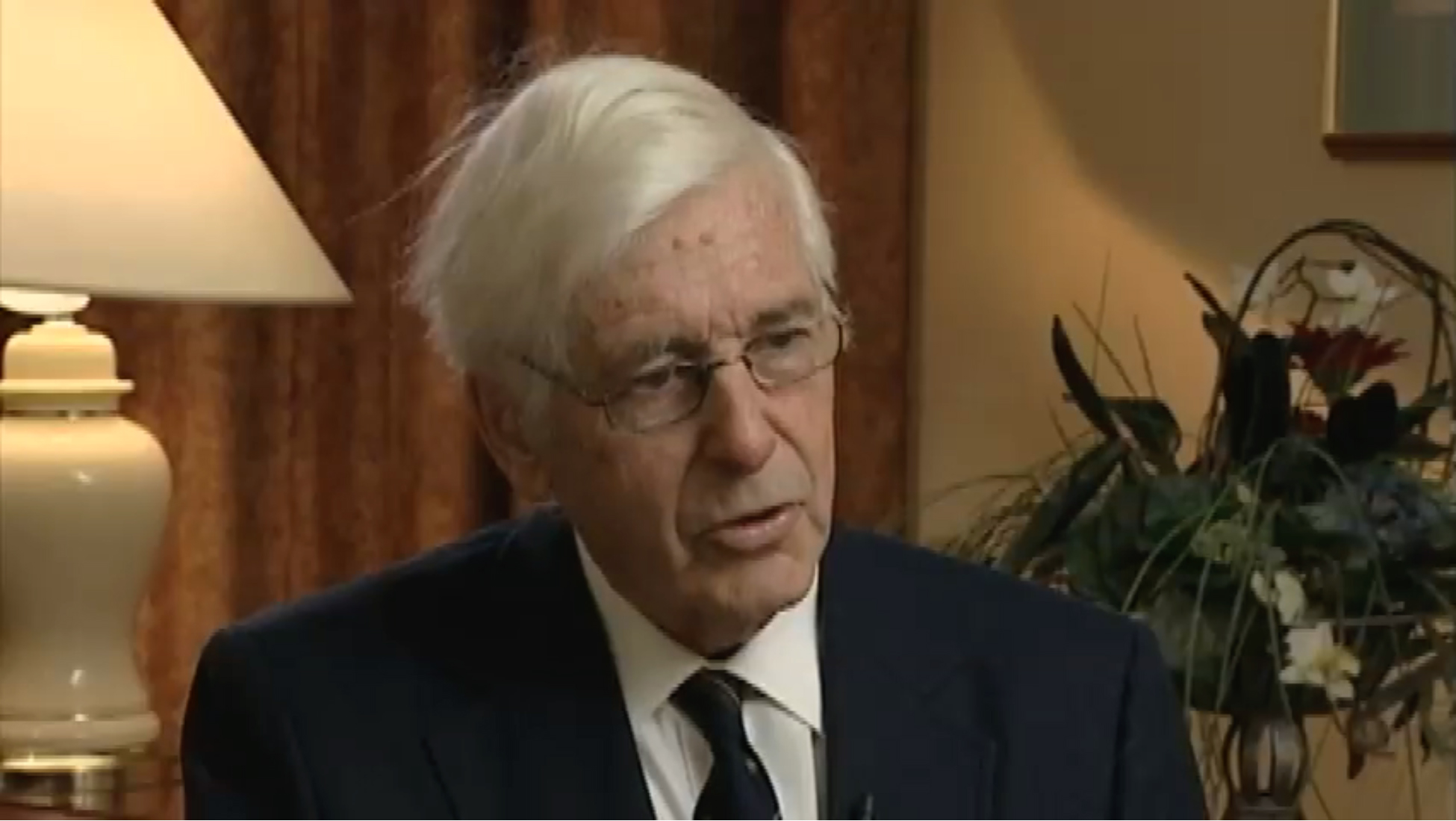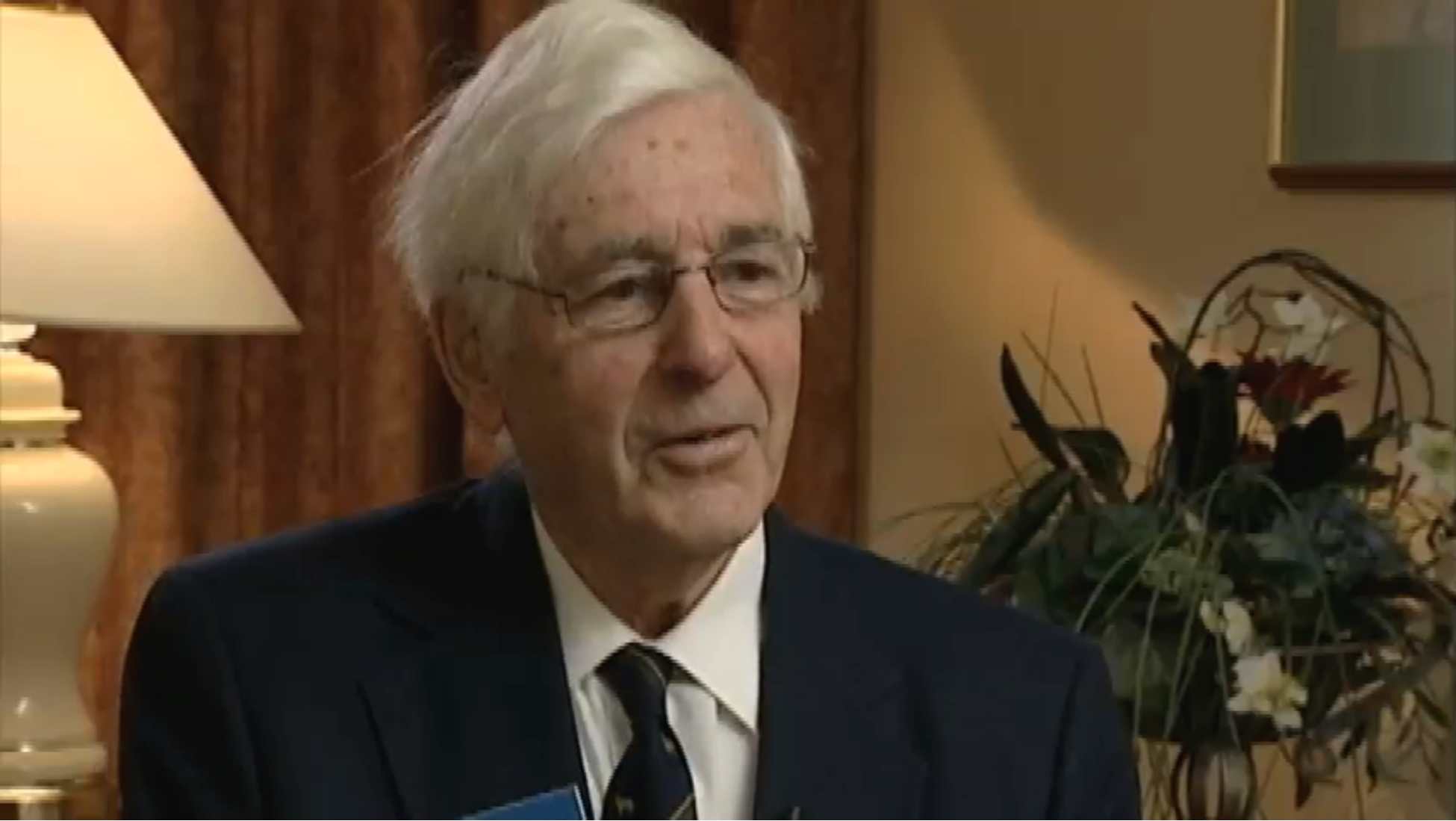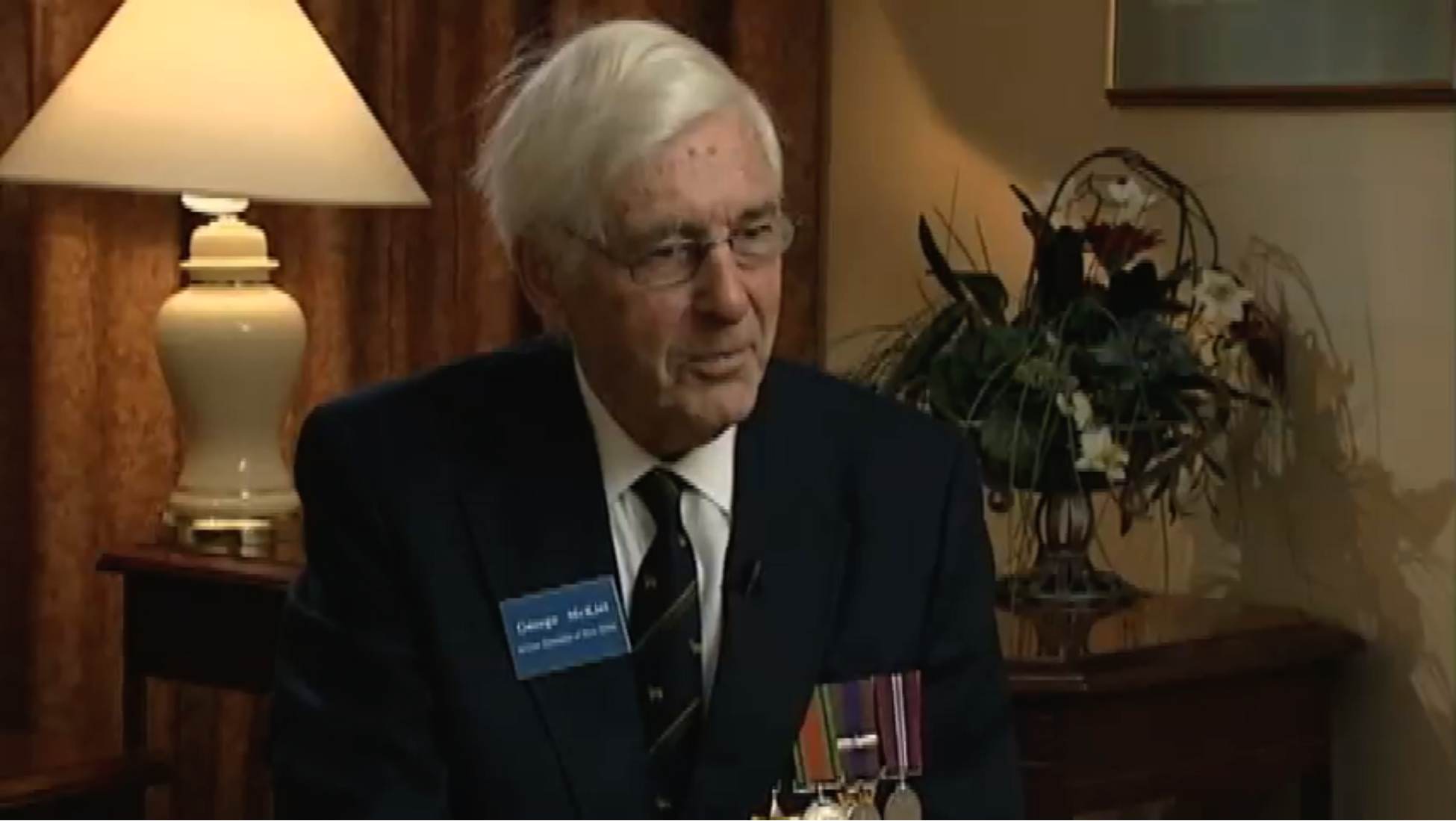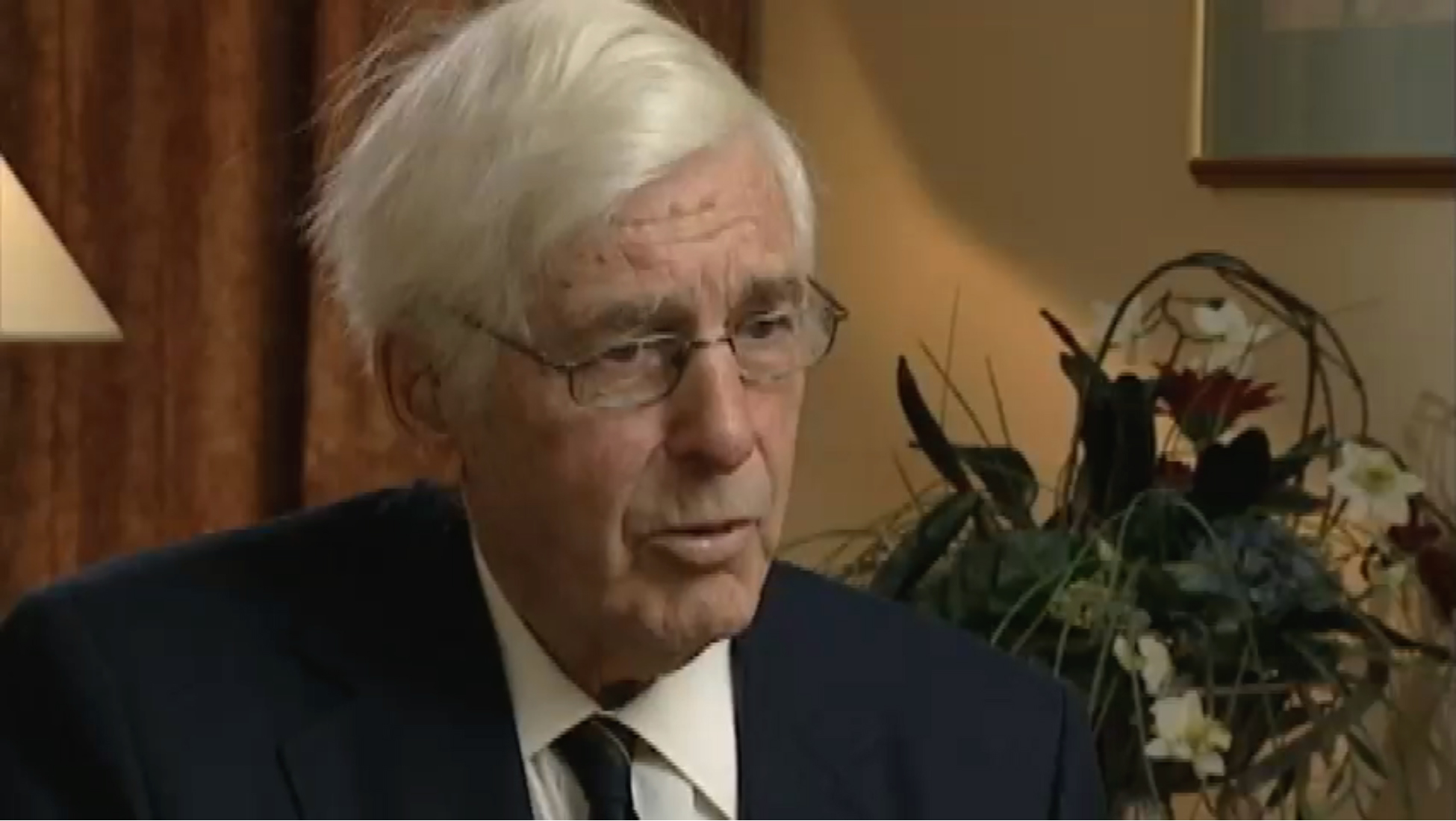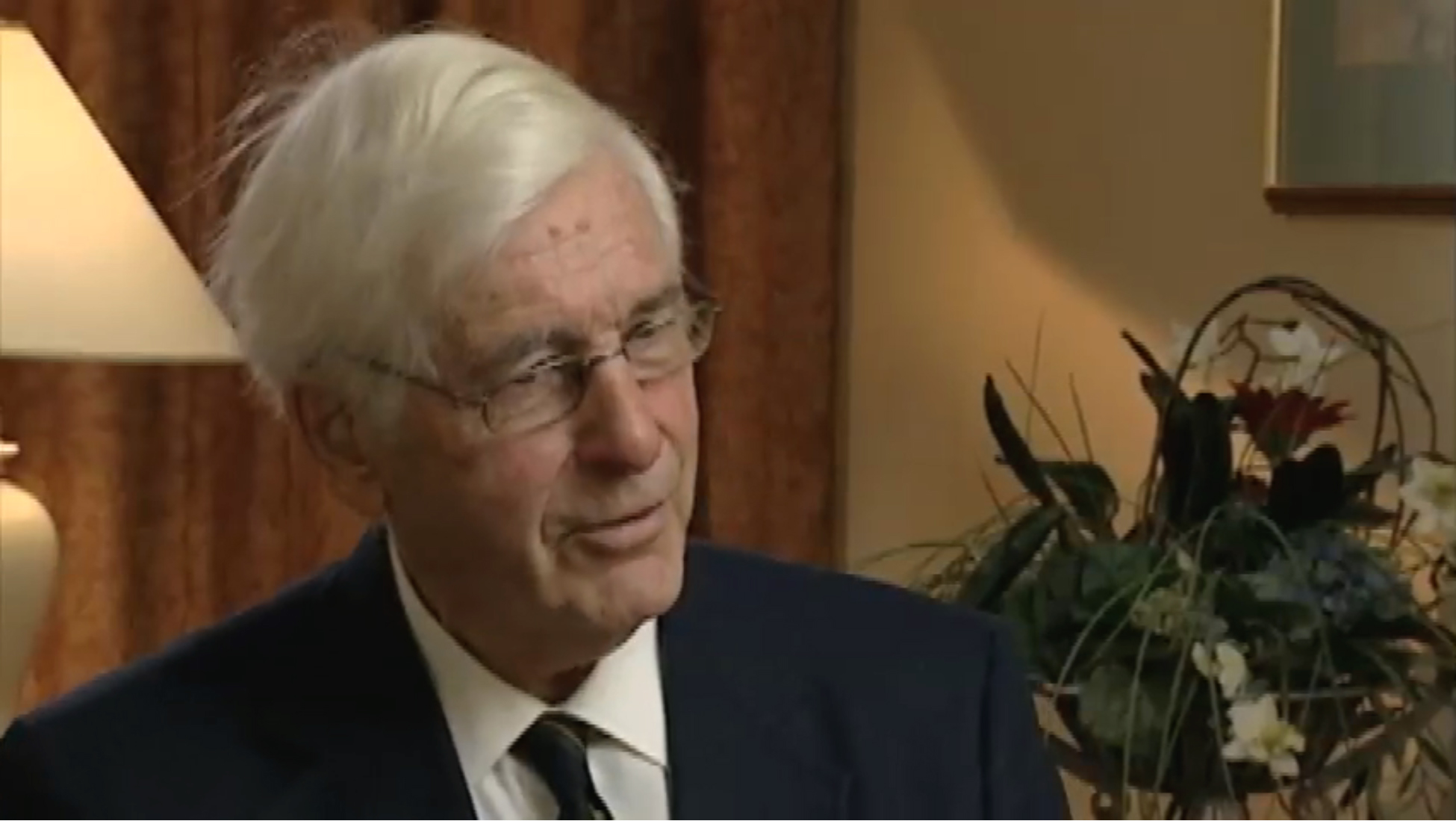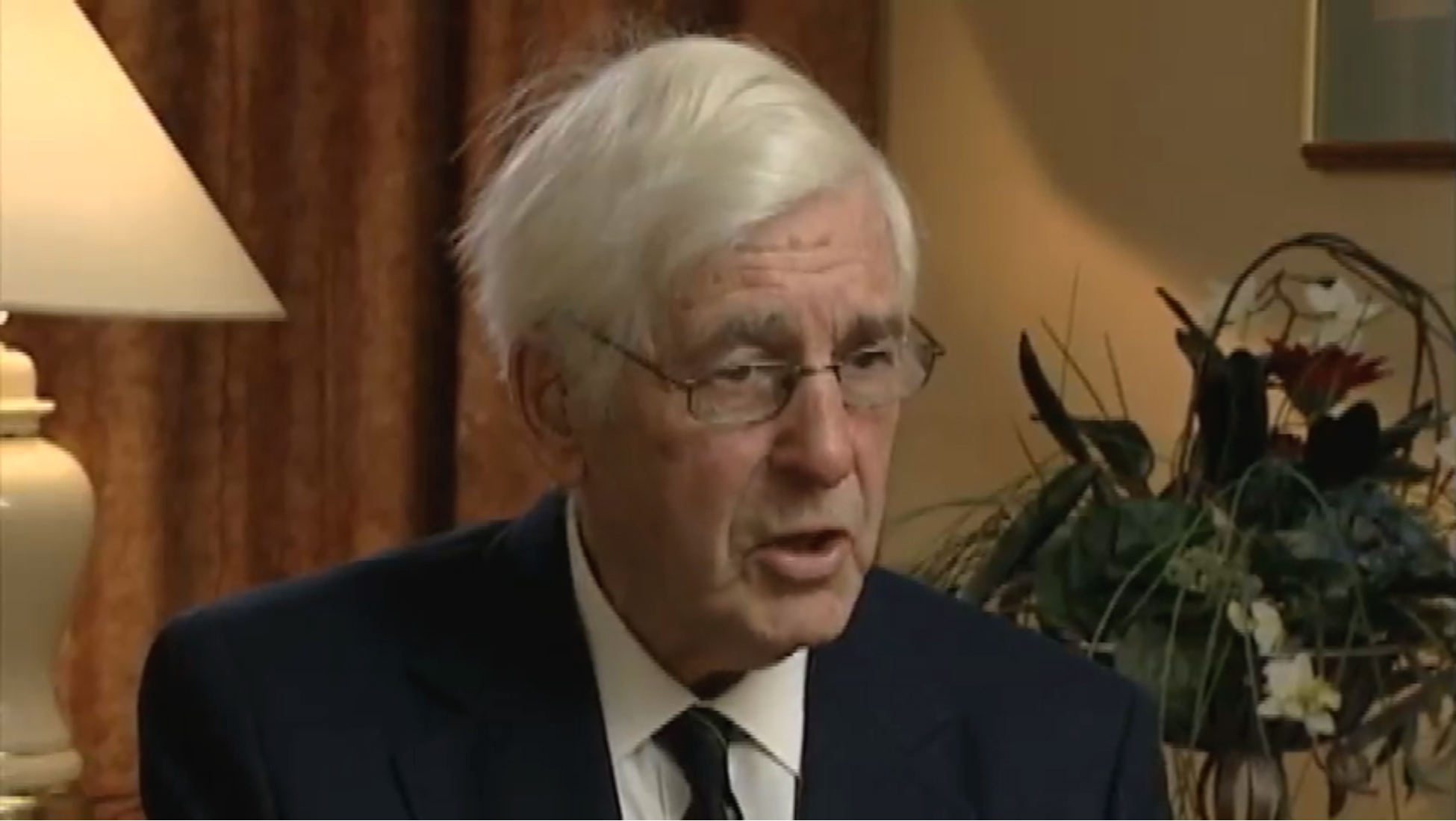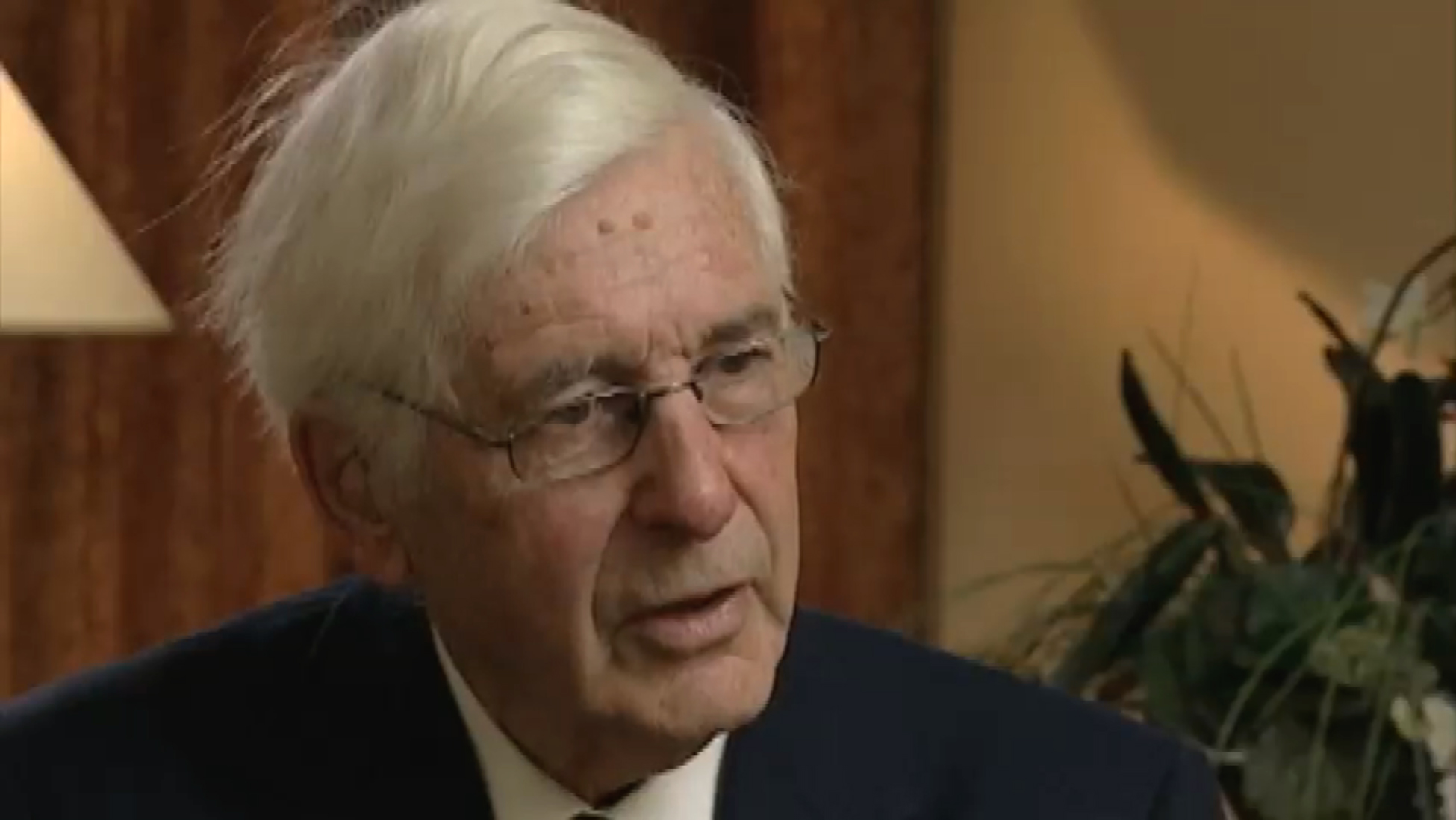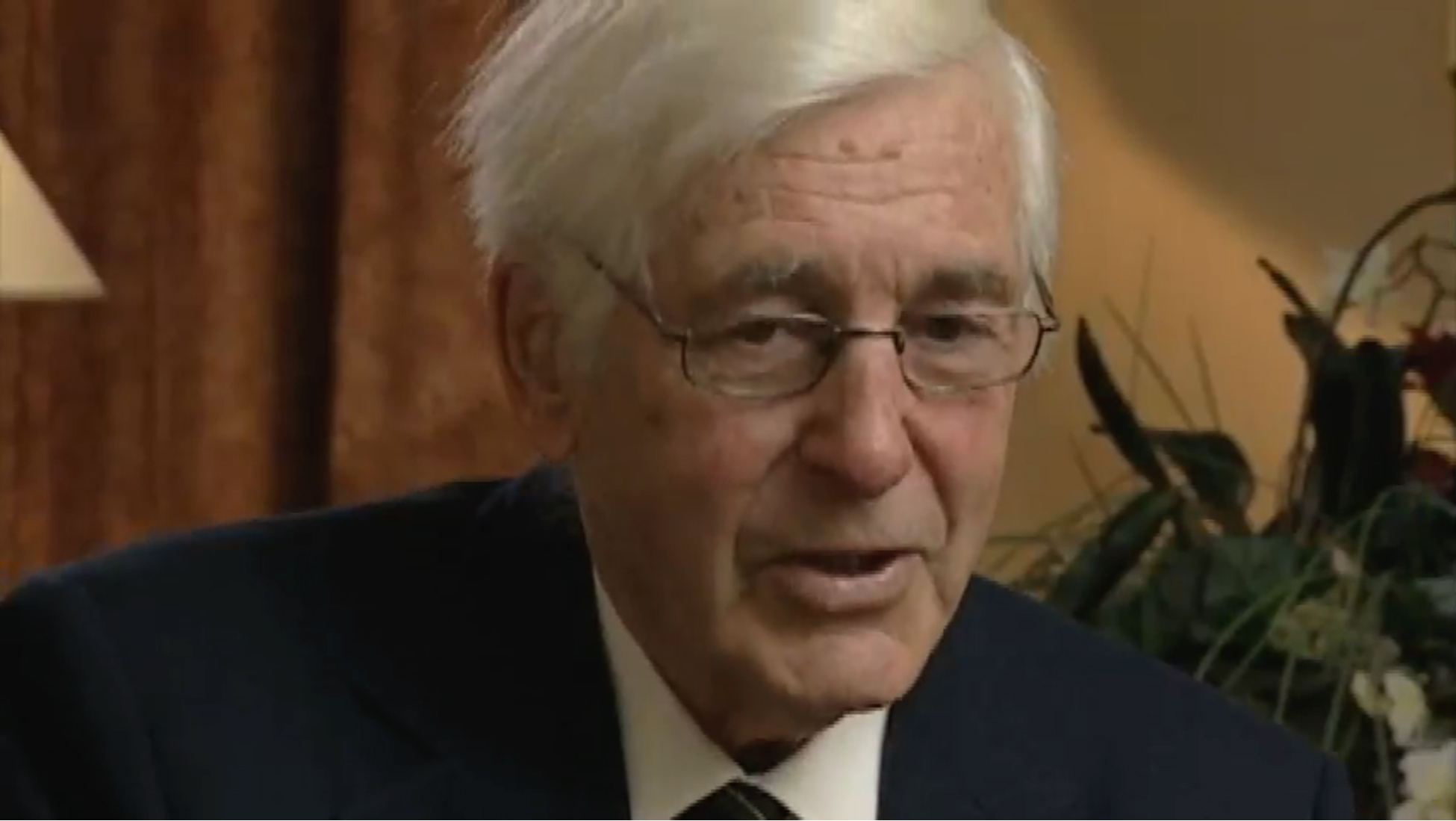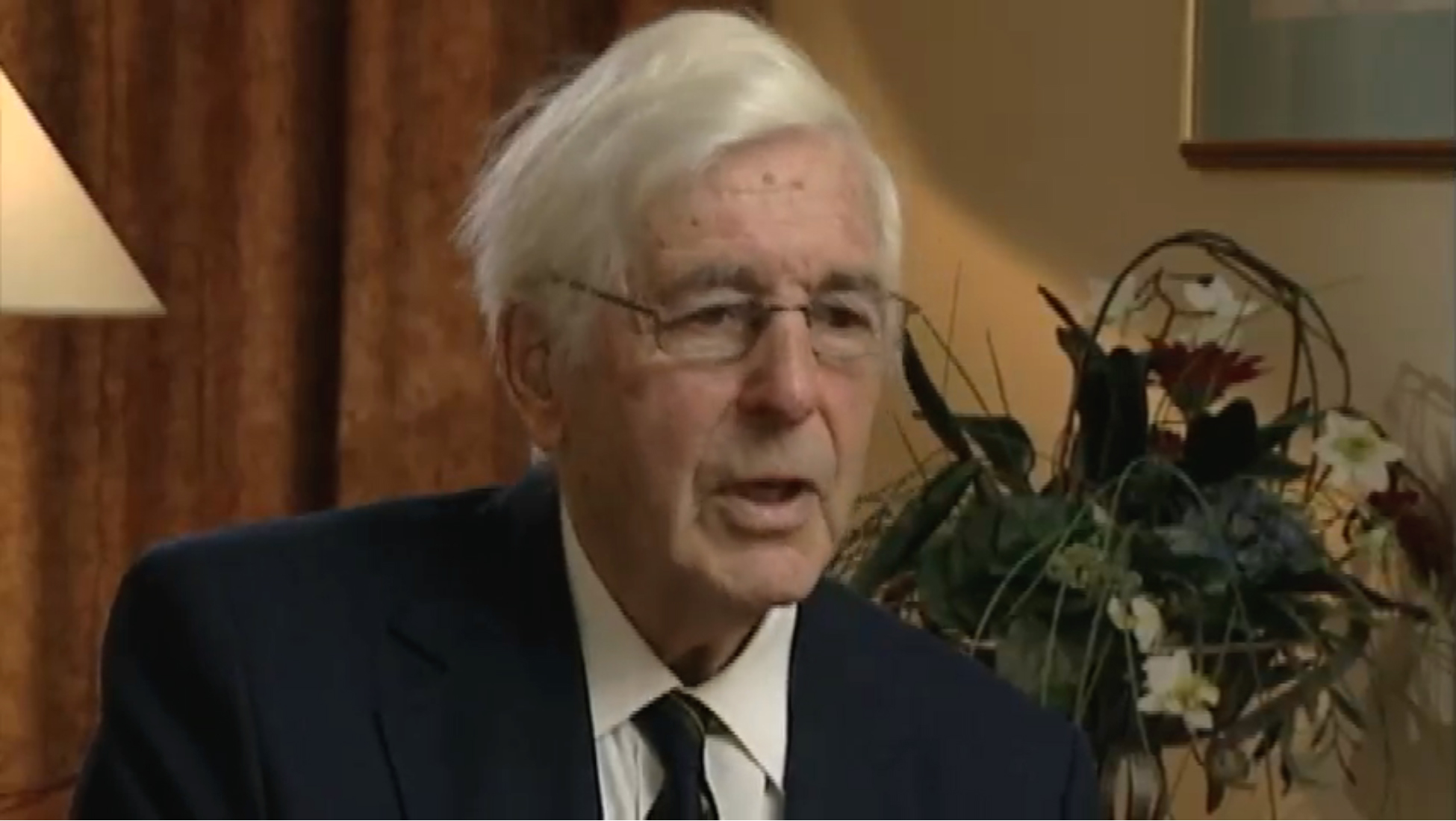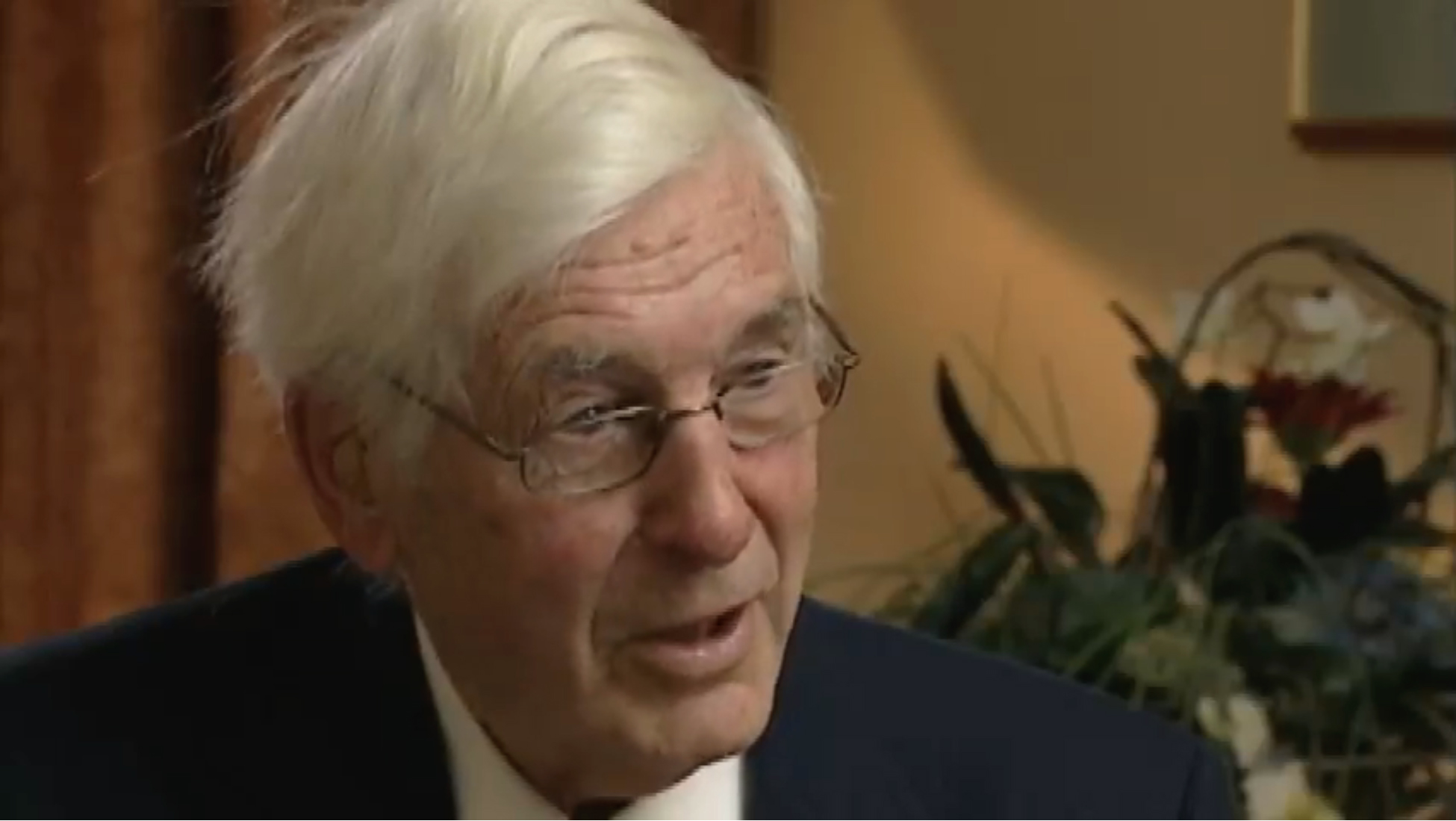When they assigned us a target of Schweinfurt, they were
intensely interested in hitting the ball bearing factories.
They considered that a high priority. So, in fact, this
particular night that I was shot down, we were assaulted
with a, a lot of activity on the part of the Luftwaffe.
They knew where we were coming because we had...
the position of the target was so far into Germany that they
were able to take their fighters down to that area and be
all ready for us. And what happened actually was that we
were over target, we had just dropped our bomb, our bombs,
and a Messerschmitt was in their own anti-aircraft fire,
and he came up from underneath us, which was the blind
spot on the Lancasters, and the first attack was severe
enough that I was sitting in my position and I could see
the petrol gauges or gas gauges just unwinding.
So, I knew that we had no way of getting back to England,
so I immediately gave my pilot a course for Switzerland
hoping that we might stagger a little closer and maybe even get
across the border into Switzerland. However, the fighter
either stayed with us or they, they radared another one onto us,
and on the second attack we were in bad trouble, going down,
and so the pilot ordered "bail out". I got up to the front of the
aircraft, and thinking that I might be possibly the third man
out of the aircraft, I discovered that my flight engineer was
crouched over the hatchway where we would bail out
in the nose of the aircraft, and he didn't seem to be doing
anything. So I sort of peeked around to see if he had his
parachute on and realized that he was frozen. And once
I realized that he had his parachute on, I gave him a nudge
with my toe and out he went, and then I followed, thinking
to myself, I'll hang on to the ripcord because it was
a metal ring. That's about the only weapon I have on me,
and in the process, I realized that the winds were much
higher than we had calculated or that Met had given us
And, so, almost immediately, my parachute started
oscillating very badly and at one point I looked down
and my canopy was below me, and I thought,
"I'm going to go through the canopy." So, I started to pull
on the ropes to try and stop the oscillation, at which point
I lost my egg. Now, this is a very crucial part of my story
because in Operations England, when you were flying on
operations, you were allotted one egg. You could have
the option. You could either have it before you flew or when you
came home. So, almost everybody said, "No, I'll, I'll take my egg
with me now." And I lost mine, so that was a bit of trauma in
bailing out. Anyway, I coasted down but the winds were so
high that the whole bunch of us, if we got out... I didn't know
who had got out, but we were so scattered that we never
made contact on the ground, and I didn't know until a whole year
later what had happened to the rest of the crew. All I knew was
that we had a mid upper gunner who was dead on the first
attack from the cannon fire. So, I got on the ground and then
realized that I had lost a flying boot on the way down, so I was
a bit not much good at walking. But I tore a portion of the
parachute up and made it into a boot and buried the rest of it
thinking that, that would get rid of the evidence and then
started to take down the insignia on my battledress, so that
I would perhaps look like a Luftwaffe instead of a RCAF character
and set off. And we were well equipped with escape kits,
as we called them, which contained a, a fair bit of money,
I think, in the range of about 200 dollars of currency, in case
we got into a situation with the underground and were able to
pay our way, so to speak. The other thing was that we had some
condensed food, in toothpaste tubes essentially, and also some
pep pills to keep us awake and keep going. So I set off and
hiked and hiked and I was on the loose for two or three days
before I finally took refuge in a barn, woke up to find two
Volkswurm, Volkssturm, which is the equivalent of the Home Guard,
with fixed bayonets at, pointed at my neck and they apparently...
A farmer had come out and must have seen a foot or an arm
sticking out through the hay. And they eventually turned me over
to the, the local police, and they in turn handed me over
to the Luftwaffe, who were responsible for all of the air force
prisoners. And I was shipped off to Frankfurt on Main
where there was a Dulag Luft, a sort of reception camp,
and spent about a week there. I didn't hear anything about
the rest of my crew at all, but then they sent,
I think there were five or six of us with three guards,
and we didn't know where we were heading or
where we were going to end up, but we
eventually we ended up at Stalag Luft 3.



